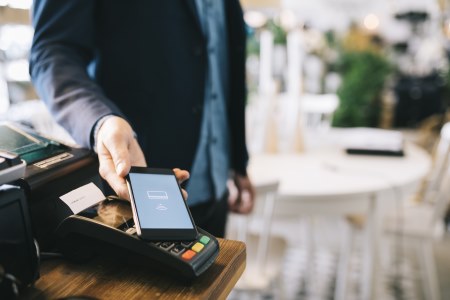
Contactless payments have overtaken the previously preferred Chip and Pin transactions to become the most popular method of paying for goods and services in the UK.
Worldpay announced that tap and pay spending surpassed Chip and Pin for instore payments in Britain during the period of June 2017 to June 2018. Contactless payments increased 30% across the country during the last year, beating C&P payments to become the most popular mode of spending.
The biggest shift was seen in the fashion industry, with retailers reporting a whopping 415% year-on-year rise. Mobile contactless payments also saw a significant increase particularly in the clothing and footwear sector, soaring almost 500% during the past 12 months. Betting shops and department stores also contributed to a growth in mobile contactless payments: exhibiting an approximate rise of 150-250%.
According to Worldpay, the numbers could continue to increase as they predict that British shoppers may spend up to £38.5billion via contactless in-store payments. This rise is attributed to the use of mobile wallets such as Apple Pay, Samsung Pay and Google Pay, which have seen a 114% hike year-over-year.
Steve Newton, executive vice-president of the company believes that “the rise of contactless is part of a bigger story: it’s not simply about tap and go – it’s about convenience and reducing the parts of the shopping experience that customers find irritating, like queuing and waiting to pay. Over 50% of shoppers believe that their phones could replace their wallets within the next five years – the phenomenal growth of mobile contactless is a leap along this path. With the added benefit ‘limitless’ transactions and biometric security offered by mobile wallets, our smart phones could be the key to the next frontier of frictionless commerce.”
Worldpay also stated that the use of both mobile and card contactless payments grew particularly in Northern Ireland. The global mobile payment company processes over 40 billion transactions per year, across 146 different countries.
